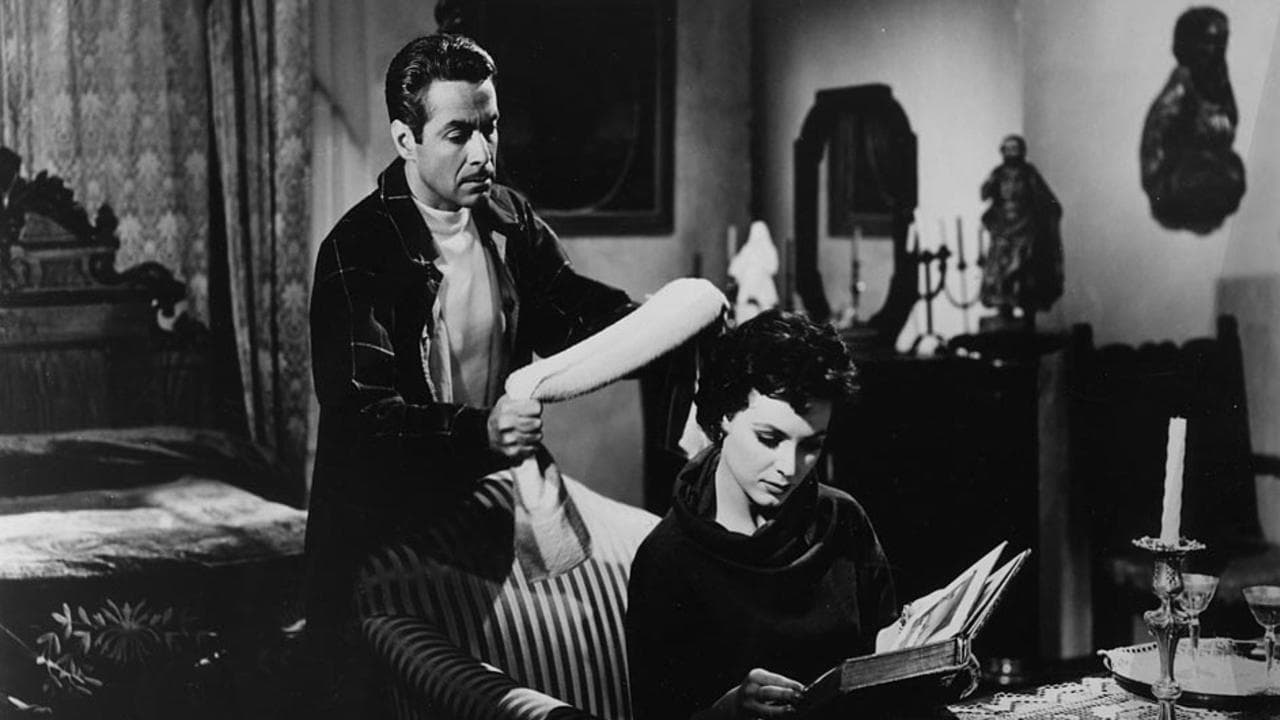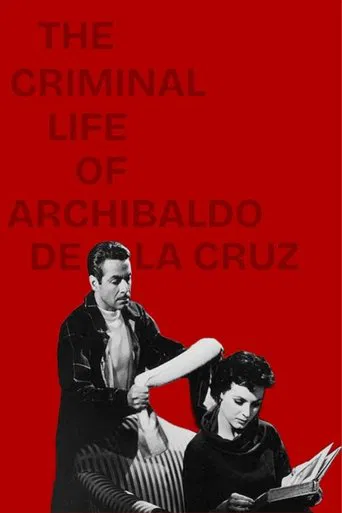Claysaba
Excellent, Without a doubt!!
Ava-Grace Willis
Story: It's very simple but honestly that is fine.
Abegail Noëlle
While it is a pity that the story wasn't told with more visual finesse, this is trivial compared to our real-world problems. It takes a good movie to put that into perspective.
fred-287
That of course is where Jesus supposedly said "You have heard that it was said, 'You shall not commit adultery.' But I tell you that anyone who looks at a woman lustfully has already committed adultery with her in his heart." That is to say, thinking about doing a thing is as bad as doing it. That precept never made much sense to yours truly, and apparently it didn't to Luis Bunuel either, because the whole point of this movie seems to be to refute that notion. The title character fantasizes about killing various women he comes across, but circumstances always seem to conspire to prevent it. At the end when he demands to be arrested, an authority figure replies, in effect, "For what? You didn't do anything." The best part of the film is the opening sequence apparently taking place around the end of the Mexican revolution period c. 1920, with Archibaldo as an insufferably spoiled only child giving grief to his long-suffering but stoic nanny. Filmed in Bunuel's trademark style with long takes and barely perceptible camera movements, this battle of wills is fascinating until the arrival of the lad's rich idiot mother (rich idiots being one of Bunuel's favorite lifelong targets). Meanwhile the nanny watches through the window as a gun battle unfolds in the street below; she catches a stray bullet, and young Archibaldo finds himself fascinated with her corpse. Cut forward to the adult Archibaldo, now a rich idiot in his own right plus an obsession with being a serial killer. This main part of the film was less interesting for me, mostly because Bunuel allows the adult actor to perform almost like a cartoon, with bulging eyes and goofy leer, like a mentally retarded Snidely Whiplash. The supporting cast are competent performers but in my memory I have trouble telling some of them apart. There are some nice fantasy sequences, such as Archibaldo ordering his bride to undergo an elaborate Catholic ritual before shooting her. Probably the best known sequence, Archibaldo cremating a mannequin, left me more or less unmoved, although it probably seemed more sensational in 1955. Part of the problem here is that, as in the later "American Psycho," how compelling is it if all the bad stuff takes place inside the guy's head? Also there's a lack of that great sexual tension that Bunuel was able to generate in some of his other Mexican work, such as "Susana" or "El Bruto." But certainly it's a must see at least for Bunuel fans; like Hitchcock's "The Trouble with Harry" from the same year, this is the closest this director comes to true whimsy (especially the parts with the American tourists) in a career of mostly much darker shades.
andrabem
"Ensayo de un Crimen" describes a man that after a childhood experience intimately connected with a music box revels in murder dreams - sex, pleasure and murder being intimately linked: In the time of the Mexican revolution his baby-sitter was killed by a stray bullet in front of him. As she is lying there dead and defenseless, blood running down her throat, going down her thighs, the boy feels deep pleasure and power. All this is punctuated by the sound of a musical box. In the chaos of the times the musical box disappears and these feelings are buried and forgotten. One day, Archibaldo de la Cruz, already a grown man, finds that musical box in a shop and, barely concealing his excitement, buys it and his old dreams come to the surface again.In the beginning of the film (after a mysterious accident suffered by a nun), he goes to the police station in order to confess a murder and tells the story of his life to the police chief. His life is shown in flashbacks and shows the life he led and the women he met. From now on it is difficult to tell reality from dreams.Buñuel is a very good actor's director and aptly describes the straight-jacket morality of the time where official marriage is mandatory (for women this is like a prison where the warder is her husband), and the icons of the catholic church are a dominant presence. Here are the essential elements present in the films of Buñuel. Fantasy/ Reality, double-standard morality and the church - the only road to freedom seems surrealism, fantasy overtaking reality.Buñuel's films are sensuous and full of atmosphere and here as usual reality is not what it seems. Even if he, in his early Mexican films, seems to make concessions to the producers, you will notice under the surface all the themes that obsessed Buñuel and that would come to the foreground in films like "Viridiana", "El Angel Exterminador", "Belle de Jour" etc..
Claudio Carvalho
In the 50's, in Mexico, Archibaldo de la Cruz (Ernesto Alonso) comes to a judge to confess crimes of his own. He tells his life since he was a spoiled boy, in the days of the Mexican revolution, when he won a music box from his mother and developed a bizarre desire of killing women, becoming a serial killer. In the end, this movie is a psychological dark comedy of the Mexican phase of Buñuel. I have just had the chance to see this film on DVD, recently released by the best Brazilian distributor (Versátil), and I found it another excellent work of Buñuel, one of my favorite directors ever. The story is very ironic and unpredictable, and I totally disagree with the User Comments `Minor Buñuel' indicated for this film. My vote is nine.Title (Brazil): `Ensaio de um Crime' (`Rehearsal for a Crime')
zetes
Perhaps my favorite of Buñuel's Mexican years. As a child, Archibaldo de la Cruz willed the death of his young, sexy nanny through the device of a magical music box. As an adult, he finds this box at a pawn shop, and it awakens the exciting feelings he had as he stood over the corpse of his nanny checking out her exposed thigh. He decides to become a serial killer, but it never quite works out that way. Every person he sets out to kill ends up being murdered by another's hand. Actually, I shouldn't say "person," as Archibaldo's violent emotions only arise towards women. There is some heavy Catholic symbology to the picture, and the violence towards women obviously arises from the twisted mores of Catholicism. His first intended victim as an adult, for example, is a brazen tramp who openly expresses her wish to seduce him to get back at her husband. Buñuel had perhaps the most impeccable sense for creating finales, and the one here is as odd and remarkable as any other. Watch the two actions Archibaldo performs with his cane. I'm not 100% sure what they signify, but I know that must be of the utmost importance. Ensayo de un crimen should be watched back to back with Buñuel's 1953 film, Él, also about a man being driven insane over his wife because of his strict religious beliefs. 10/10.

